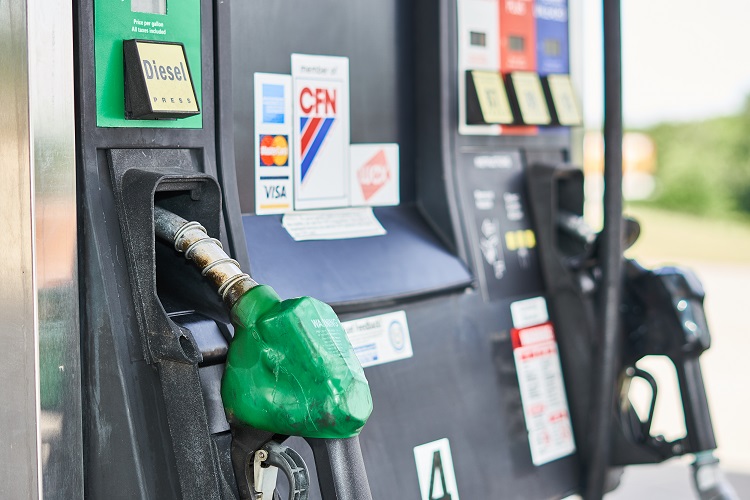More and more companies are turning to business fuel cards as their go-to solution for managing fleet fuel costs. These cards provide a secure, flexible, and efficient way to handle payments, making them an essential tool for businesses with mobile teams. But what really makes fuel cards different from traditional methods like cash or credit cards? In this post, we'll break down the key differences between fuel cards and conventional payment options, and explain why many businesses are choosing fuel cards over older methods.

Traditional Fuel Payment Methods: Cash and Credit Cards
Convenience with Drawbacks
For years, cash and credit cards have been the standard for fueling company vehicles. They’re easy to use, widely accepted, and familiar to most drivers. Some businesses even take advantage of credit card rewards, like cashback or points. However, while these methods offer convenience, they also come with several challenges that can affect both security and efficiency in fleet management.
The Downsides of Using Cash and Credit Cards for Fuel
- High Risk of Theft and Misuse: Cash is vulnerable to theft, and once it's gone, it’s lost forever. Credit cards, although protected by fraud detection systems, lack the specific controls needed to manage fuel spending effectively. This can lead to misuse by drivers who may spend beyond intended limits.
- Time-Consuming Manual Processes: With cash, drivers must collect receipts and submit them manually, which is not only tedious but also prone to errors. Even with credit cards, tracking mileage and fuel usage isn’t always straightforward, making it harder to get a complete picture of expenses.
- Lack of Real-Time Insights: Traditional payment methods often result in delays when it comes to reviewing fuel expenses. This means inefficiencies can go unnoticed for weeks or even months, leading to unnecessary costs over time.
- No Data for Performance Monitoring: Without access to detailed mileage data, businesses miss out on valuable insights into driver behavior and vehicle performance. This can make it harder to detect maintenance issues early or improve fuel efficiency.
What Are Fuel Cards?
Designed for Fleet Management
Fuel cards are specifically built for businesses that need to manage fuel and maintenance expenses for company vehicles. They function similarly to credit or debit cards but include additional features tailored to fleet operations. When a driver uses a fuel card, they simply swipe the card at the pump, enter a PIN, and input the current odometer reading. Behind the scenes, these cards offer powerful tools that help businesses stay in control of their fuel spending.
How Do Fuel Cards Work?
Fuel cards operate on a private network that connects to over 95% of gas stations across the U.S. Each transaction is automatically recorded and sent to a secure online portal, where businesses can monitor activity in real time. This allows for better oversight, easier reporting, and improved budgeting. Plus, many fuel card providers offer mobile apps, giving drivers and managers greater control and convenience.
Benefits of Using Fuel Cards
Better Security and Control
Fuel cards come with advanced security features that help prevent fraud and unauthorized use. Businesses can set spending limits, restrict purchases to certain locations, and even control when transactions can be made. These custom controls ensure that fuel funds are used appropriately and reduce the risk of misuse.
Automated Reporting and Data Tracking
One of the biggest advantages of fuel cards is that they automate the entire process. Transaction details, including mileage, are automatically captured and uploaded to a central system. This eliminates the need for manual entry, reduces errors, and makes it easier to generate accurate reports for accounting and tax purposes.
Real-Time Visibility and Management
With real-time tracking, businesses can monitor fuel purchases as they happen. This immediate access to data helps identify and resolve issues quickly, preventing small problems from becoming larger ones. It also supports better decision-making around fuel budgets and fleet performance.
Improved Fleet Performance Insights
By capturing mileage data, fuel cards provide insights into how efficiently vehicles are being used. This helps businesses spot inefficient driving habits, track fuel savings, and detect potential maintenance needs before they become costly repairs.
Why Your Business Should Switch to Fuel Cards
Save Money and Reduce Waste
Fuel cards help businesses save money by reducing fuel waste, preventing unauthorized spending, and identifying areas for improvement. These savings can add up quickly, especially for large fleets.
Boost Operational Efficiency
By automating expense tracking and reporting, fuel cards free up valuable time for your team. This allows you to focus on more strategic tasks instead of getting bogged down in administrative work.
Reduce Risk and Improve Compliance
Fuel cards offer enhanced security features that protect against fraud and misuse. They also support better compliance with company policies and financial regulations, ensuring that all fuel expenses are properly tracked and accounted for.
Scale Easily with Your Business
Whether you're a small business with just a few vehicles or a large enterprise with a nationwide fleet, fuel cards are scalable and adaptable. They can be customized to fit your specific needs, making them a great long-term investment.
Conclusion
Fuel cards are a smart, secure, and cost-effective way to manage fuel expenses for your business. With features like real-time tracking, automated reporting, and enhanced security, they help you save money, improve efficiency, and gain better control over your fleet. If you're looking for a better way to manage your fuel costs, consider making the switch to fuel cards today.
To learn more about how corporate fuel cards can benefit your business, visit Ricochet Fuel Distributors.
Longspan Shelving,Long Span Racking System,Long Span Shelving System,Longspan Shelving Rack
Nanjing Chinylion Metal Products Co., Ltd , https://www.clrack.com